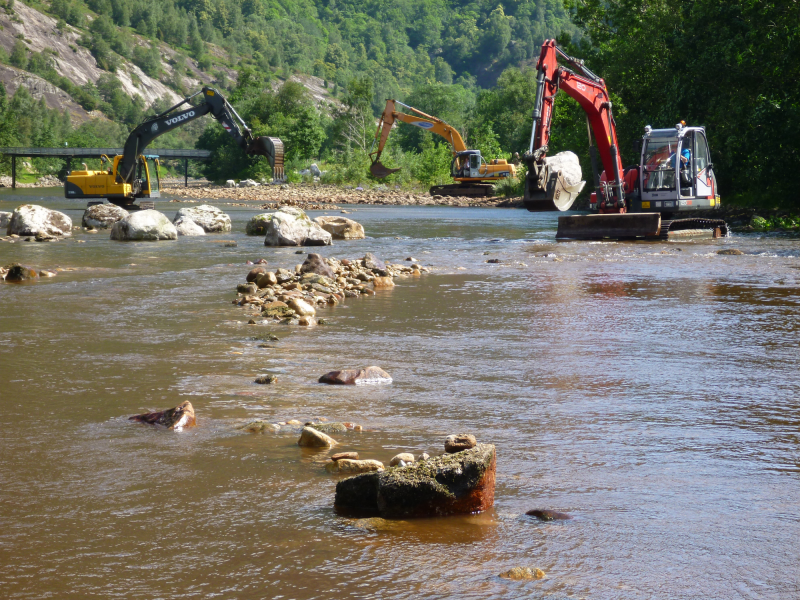Task 5.2 Flow scenario modelling
The temperature, water levels and flow will be modelled with HEC-RAS and with Computational Fluid Dynamics, CFD for two cases; Nidelva, Trondheim, Norway and part of Ume älv, Sweden for which geometrical data already exists and can be provided by Statkraft and Vattenfall. This will first be done for current running schemes of the turbines so that the models can be validated. Next, simulated flow that mimics typical turbine operations from WP2 will be used as input for the simulations and measured climate and other forcing data will be used to drive the models. Of importance is i) to figure out how large the natural damping in rivers is and how minor changes to the shore, like removing man-made weirs from timber rafting, for instance, influence the results. ii) Investigate how the technical mitigations as described in 5.1 influence the results and iii) give input to 5.3. This will result in new mitigation schemes that can be modelled and new input to 5.3 is generated. The work will be carried out by PhD-students at LTU and NTNU strongly supported by senior personnel at LTU, NINA, NTNU, NINA, Statkraft, Vattenfall and Lyse. For CFD calculations EDR will contribute with expertise.
Deliverables and milestones
D5.2 – Validated models and guidelines for evaluation of thermo-peaking and flow characteristics under present operational regime in Nidelva and Ume älv
Milestones:
- MS26 – Evaluation of passive methods to mitigate discharge fluctuations in Nidelva and Ume älv
- MS28 – Flow models of Nidelva and Ume älv exist and are ready for validation with existing data under present operational regime.
- MS29 – Primary runs with the flow models based in Nidelva and Ume älv based on scenarios of 30 starts/stops.
- MS30 – Temperatures, velocity variations and levels under 30 starts/stops in Nidelva and Ume älv without mitigation effects
- MS31 – Comparing temperatures, velocity variations and levels under 30 starts/stops in Nidelva and Ume älv with mitigations

©Ulrich Pulg/Uni Research Miljø
